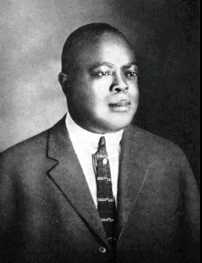Joe "King" Oliver
| Joe "King" Oliver | |
|---|---|

Joseph Oliver, ca. 1915.
|
|
| Background information | |
| Birth name | Joseph Nathan Oliver |
| Also known as | King Oliver |
| Born |
December 19, 1881 Aben, Louisiana United States |
| Died | April 10, 1938 (aged 56) Savannah, Georgia United States |
| Genres | Jazz, Dixieland |
| Occupation(s) | Bandleader |
| Instruments | Cornet |
| Associated acts | Louis Armstrong, Johnny Dodds, Lawrence Duhé |
Joseph Nathan Oliver (December 19, 1881 – April 10, 1938) better known as King Oliver or Joe Oliver, was an American jazz cornet player and bandleader. He was particularly recognized for his playing style and his pioneering use of mutes in jazz. Also a notable composer, he wrote many tunes still played today, including "Dippermouth Blues", "Sweet Like This", "Canal Street Blues", and "Doctor Jazz". He was the mentor and teacher of Louis Armstrong. His influence was such that Armstrong claimed, "if it had not been for Joe Oliver, Jazz would not be what it is today."
Joseph Nathan Oliver was born in Aben, Louisiana, near Donaldsonville in Ascension Parish, and moved to New Orleans in his youth. He first studied the trombone, then changed to cornet. From 1908 to 1917 Oliver played cornet in New Orleans brass bands and dance bands, and also in the city's red-light district (which came to be known as "Storyville"). A band he co-led with trombonist Kid Ory was considered to be New Orleans' hottest and best in the late 1910s. Oliver achieved great popularity in New Orleans across economic and racial lines, and was in demand for music jobs from rough working-class black dance halls to white society debutante parties.
According to an interview at Tulane University's Hogan Jazz Archive with Oliver's widow Estella, a fight broke out at a dance where Oliver was playing, and the police arrested him, his band, and the fighters. This, coupled with the closure of "The District" (Storyville) caused Oliver to leave the Jim Crow South. He, his wife, and their daughter Ruby left New Orleans for Chicago, Illinois in early 1918.
Oliver found musical work in Chicago with colleagues from New Orleans such as clarinetist Lawrence Duhé, bassist Bill Johnson, trombonist Roy Palmer, and drummer Paul Barbarin. He became leader of Duhé's band, playing at a number of Chicago clubs. In the summer of 1921 he took a group to the West Coast, playing engagements in San Francisco and Oakland, California.
...
Wikipedia
